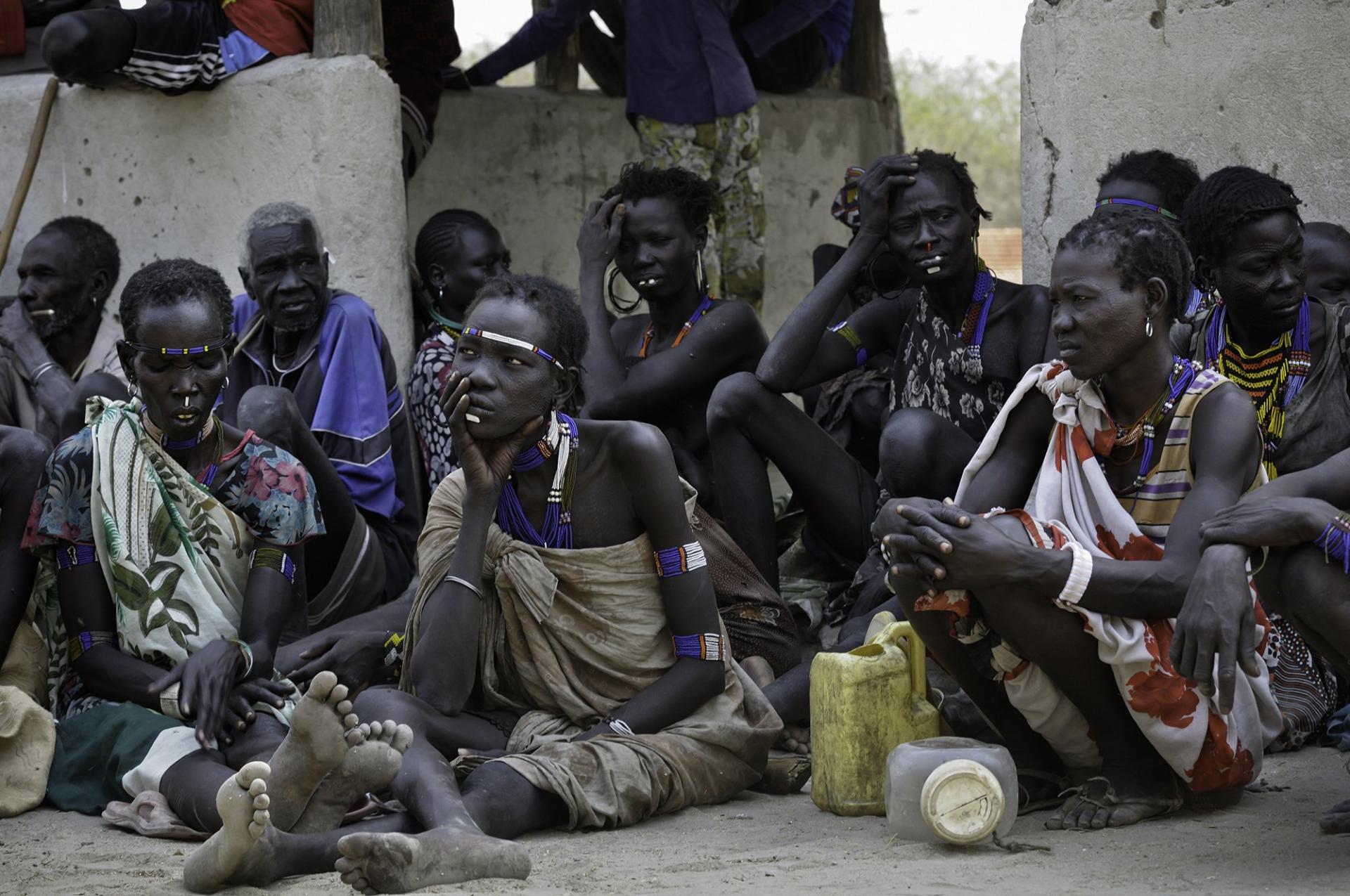A Zimbabwean nursing supervisor, Gift Farau worked in Pibor, South Sudan, where he developed a new perspective seeing stark realities first-hand and the impact of MSF’s work.
When I heard I would be going on an MSF field assignment to Pibor, South Sudan, the first thing I did was research.
From far, the town seemed like a place where, although people are alive, the negative impacts of conflict and limited access to healthcare are obvious.
Weeks later I landed in the capital, Juba, where the buildings and facilities eased my first impressions. But Pibor is not like Juba.
The only way to get there from the capital is the one UN flight that goes through each week. And instead of an airstrip for planes to land, there is an open field with cattle grazing around it.
The town itself is just a small space with no permanent structures. Residents seem to always live in fear of conflict escalating, and the possibility of them having to leave in a hurry.
So although many have been there for a very long time, people mostly still live in temporary structures that are little more than tents.
The instant the plane landed in Pibor I thought, ‘Ok, now I’ve come to the field!’
Before joining MSF I spent four years in Swaziland, working in HIV care and awareness for another NGO. But somehow that never felt like it was ‘real’ humanitarian work.
Although we were helping communities, I wanted to go out there and reach people who no one else is able to access and treat.
With MSF in Pibor, I realised what it means to help people who are really, really in need and not just to assist patients with supplementary care when they have already been helped.
MSF’s facility in the town is a simple Primary Healthcare Centre, where we see patients for regular ailments and also do some emergency room care. We did everything from treating gunshot wounds to fractures to malnutrition.
One of the biggest challenges is that most people delay in seeking medical care. They first try traditional means to deal with their wounds, so when they finally do visit our centre the wound is often infected.
Once, a small boy came in with acute paralysis, which the staff suspected maybe have been polio (a disease still present in South Sudan).
Before coming to MSF, the family had visited a local clinic where the little patient was prescribed all the antibiotics possible in a very short period of time. (Local clinics are often understaffed and due to years of conflict, health workers are often undertrained.)
When they first went to the clinic, the boy could walk but with difficulty. After all the antibiotics, he was then fully unable to walk. That’s when the clinic referred him to MSF for treatment.
We reviewed and admitted the child, and immediately stopped all antibiotics. We did a full assessment and put him on other medication instead. And in just two days time, he was able to stand on his own! Several weeks after that he was discharged from care.
The paralysis he experienced was not really caused by polio at all. It just needed some attention from medical staff, to properly diagnose and treat the child instead of starting him on an unnecessary course of antibiotics.
There are some challenges to getting patients to the health centre as their first port of call. For those of us wanting to help, and wanting to do all we can do for this patient, it sometimes feels like we put in a lot of effort to get the patient the best treatment, but they do not always understand our perspective.
It was very frustrating at first. But later on, I thought about it and realised that it’s not a problem with the patient, it’s just that this is a situation where we see and understand things in different ways.
At the end that actually motivated me in the sense that it made me want to go back to Pibor – and given the chance, try to implement things that may help the community understand us better.
In the end, it made me see that education through health promotion has a lot of work to do in a place like Pibor – especially having respected people from the same community who are the ones conveying important messages and educating people about accessing healthcare.
In South Sudan, I was lucky to have seen conditions and treated patients before anyone else had helped – unlike a hospital in a more developed place, where there’s always other people and equipment.
In Pibor when someone comes in with a fracture, you have to figure things out through your own experience and innovate solutions.
Even with the constraints, the truth is MSF is having a big impact there. In the end, I felt I was more helpful in a setup like Pibor than working in a hospital setting at home.
Find out more about MSF's work in South Sudan.
